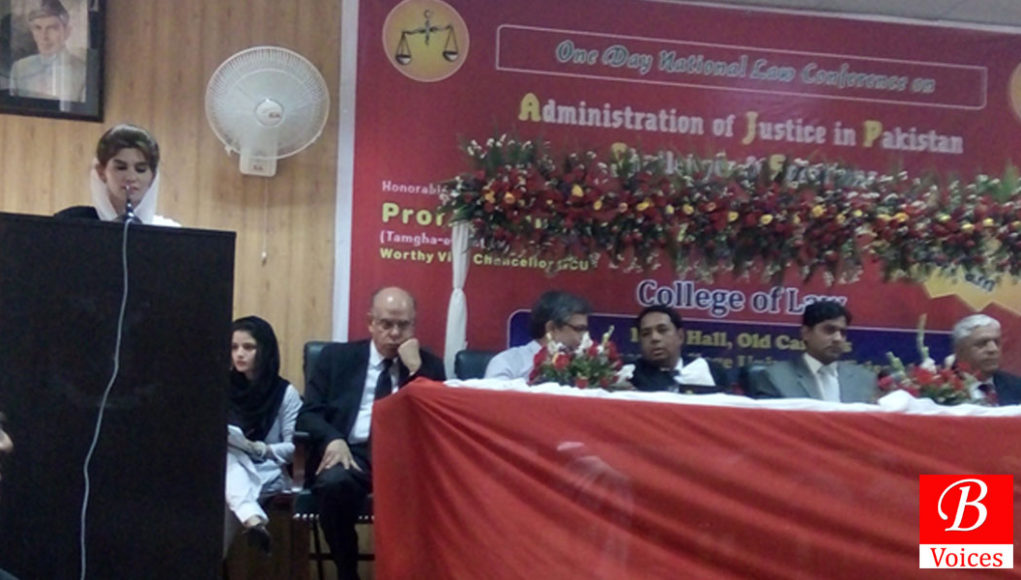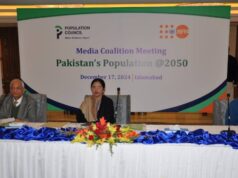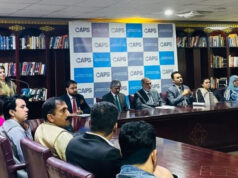Shams Ullah Durrani
Faisalabad: Talking to a one day conference on “Administration of Justice in Pakistan, Challenges and its Solution”, Professor Dil Muhammad Malik said that “Justice” means giving and providing due rights of individuals and ensuring fairness, balance and equity for the basic rights of individuals. And, the scale of measuring these rights is “morality”. Giving the example of Pakistan; he said that it is alarming situation for us that Pakistan ranks in a very low category of justice providing countries. We have to revisit the old laws.
On the other hand, while explaining the role and function of judiciary from historical context, he mentioned that judiciary‘s basic purpose was to resolve disputes and human history started from for Adam when two brothers fought and they demanded for justice. In the same way, the historical resolution of justice is having 4000 years old history and the value system justice written laws for reducing the corruption had introduced 2000 BC before. In the same way, the Greeks and Romans had great systems of justice.
Apart of the historical context of judiciary, he also talked about the situation of judiciary in Pakistan, the professor Malik mentioned that here we have three types of juridical courts. The Supreme Court, High Court and the District Court. While favoring the high courts on supreme courts he said that the highest powers are with the provincial courts who decide the decision of the case and the supreme courts play the role of sub courts respectively. And, there are four legal laws in the civil judicial system. On the other hands, he talked about the challenges faced by the judicial system of Pakistan are following;
- Old judicial laws
- Heavy work
- Tendency of political questions hearings in the courts
- Low quality of legal education and small number of judges for court proceedings.
While concluding his presentation, he suggested some recommendation for the judicial system of Pakistan:
- Number of judges should be increased
- The Bar Council will have to organize proper training for the lawyers.
- Writing arguments should be promoted as compare to oral communication.
- There should be alternative disputes resolution outside the courts for case proceedings.
Dr. Ata Ullah Khan, from International Islamic University talked about the two types of justice;
Distributive and Currioty Justice. He urged upon the self-initiative based justice for the greater good.
The final speaker of the conference was Barrister Irfan Ahmed Chatta, an international scholar who highlighted the Administration role and Curse of Corruption in Pakistan. He suggested that fair and transparent system inside the courts should be implemented and there should be merit based policy for new appointment of judges. In the same way, for the betterment of judicial system in Pakistan, we have to eliminate the lengthy procedure of case hearing and filling. Moreover, old laws should be replaced by new laws. Lastly, judicial bar council should conduct awareness workshops for the masses.
Share your comments!








